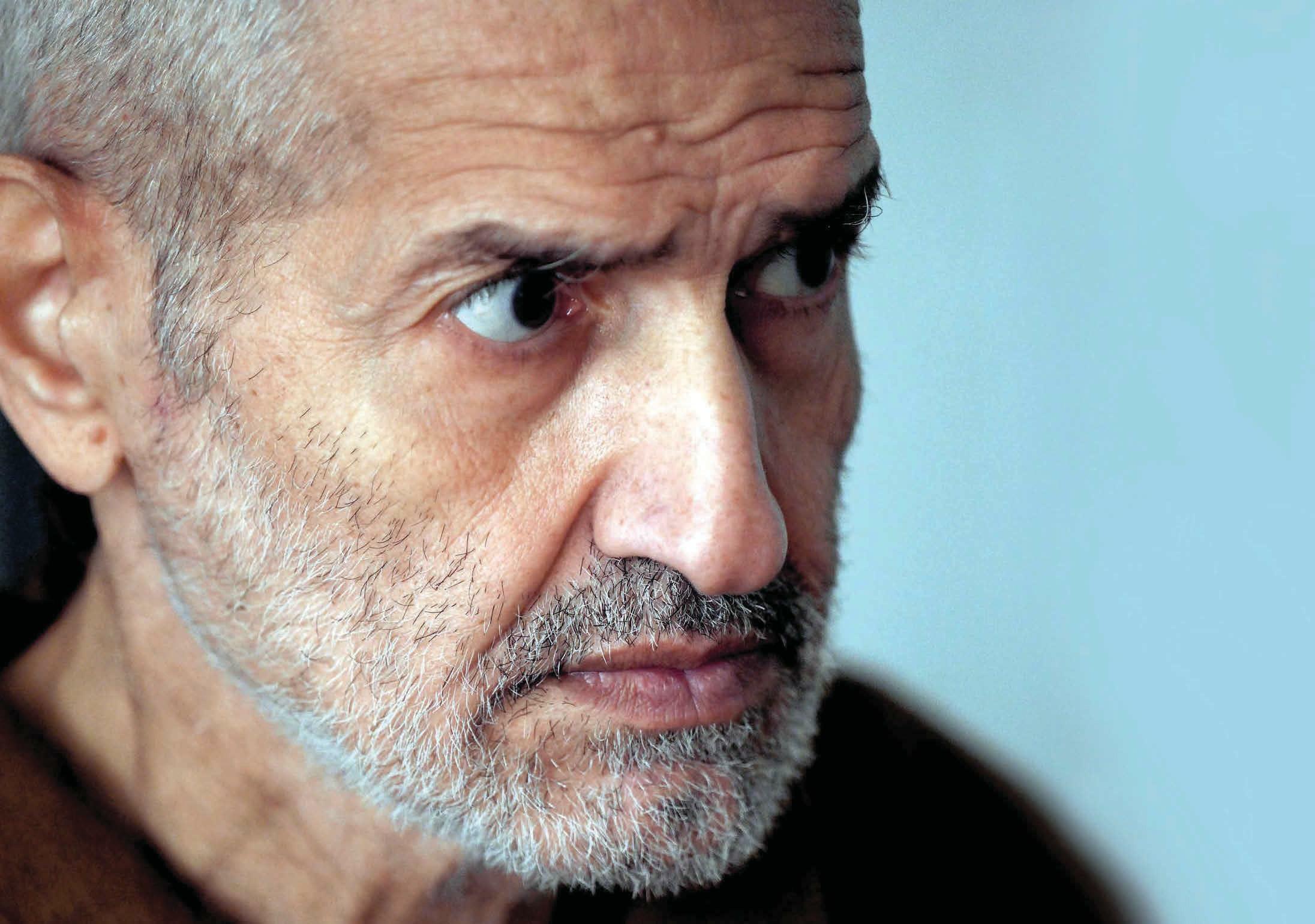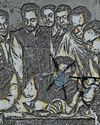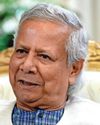THE RECRUITER

It is a rainy day, with temperature dropping to 4 degrees Celsius, as I set out for Hasakah, a well-known town in Rojava (Autonomous Administration of North and East Syria) to meet Mohammed Haydar Zammar, the man who recruited the hijackers who carried out the September 11 attacks in the United States in 2001. As we near the prison holding Islamic State detainees, my fixer (translator and guide Ferhan Yusuf) receives a voice message.
Kurdish authorities instruct us to proceed to an undisclosed spot.
After I wait for some time in a small makeshift room there, a frail old man enters. Clad in a half-maroon prison uniform, the 64-year-old moves slowly. An officer unlocks his black handcuffs and lets him step forward. I insist on seeing his face as we speak. The officer responds in Arabic before removing the black shield covering his face. He is fair-skinned. His shaved head, light beard and stained, decayed teeth give him a worn, sickly appearance.
Zammar removes his thin, black, well-worn slippers, held together by several white knots. Looking at me, he says, "Salam Alaikum," before waiting for the officer's permission to take a seat on the blue sofa in the corner of the room.
"Can we talk in English?" I ask.
Zammar looks at me briefly before replying, "I know little English only."
The Kurdish authorities ask him, "Which language?" "Arabic," he responds.
Trained by AI Qaeda leader Osama bin Laden, Zammar played a crucial role in radicalising members of the infamous Hamburg cell in Germany who went on to perpetrate the 9/11 attacks. According to Kurdish authorities, he knew Islamic State leader Abu Bakr al-Baghdadi and worked with Abu Mohammed al-Jolani, who took over as Syria's interim president on January 30.
Once a staunch believer in violent jihad, Zammar has since mellowed.
His demands are now simple: he wants a Quran to read in prison and wishes to meet his family.
この記事は THE WEEK India の February 16, 2025 版に掲載されています。
7 日間の Magzter GOLD 無料トライアルを開始して、何千もの厳選されたプレミアム ストーリー、9,000 以上の雑誌や新聞にアクセスしてください。
すでに購読者です ? サインイン
この記事は THE WEEK India の February 16, 2025 版に掲載されています。
7 日間の Magzter GOLD 無料トライアルを開始して、何千もの厳選されたプレミアム ストーリー、9,000 以上の雑誌や新聞にアクセスしてください。
すでに購読者です? サインイン

THE SHEPHERD'S SHIFT
How a nightclub bouncer became the bouncer of souls

Her time to shine
Indian women artists dazzle at Art Dubai 2025

DESIGNING A NEW DAWN
The dust has settled after the ouster of Sheikh Hasina, and Bangladesh is in the process of a challenging political transition

Shocks pound Britain
Is Britain growing out of growth? Strange questions beget strange answers.

'Working funeral' in Vatican
Donald Trump tweeted, “Melania and I will be going to the funeral of Pope Francis, in Rome.

A sage, his physics and friends
Ranjit Nair died on April 14. I felt bad and sad. Two days later, Nikku Madhusudhan, an India-born Cambridge physicist, announced he had found life on an exo-planet about 120 light years away. I told myself, I'm going to miss Nair.

WE HAVE TO BUILD A NEW BANGLADESH OUT OF THIS DISASTER
At 84, Nobel laureate Muhammad Yunus is at the helm of a transitional government in Bangladesh—a country grappling with political upheaval, shattered institutions and the hopes of a restless generation.

Warfare rewired
THE WEEK DEFENCE CONCLAVE saw defence leaders and industry experts discuss India's roadmap to becoming a truly self-reliant, tech-driven military power

EVERYONE WANTS A FREE, FAIR AND INCLUSIVE ELECTION
Many leaders of the Awami League have still not come to terms with how they were thrown out of power by mass protests in July last year.

DISSECTING THE ATTACK
There is a reason why the terrorists chose Baisaran
